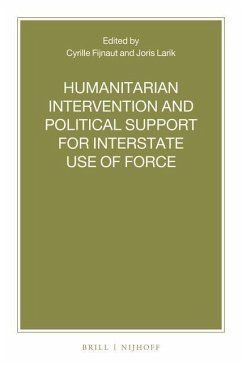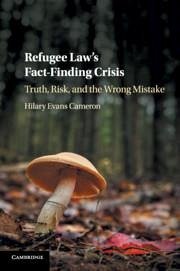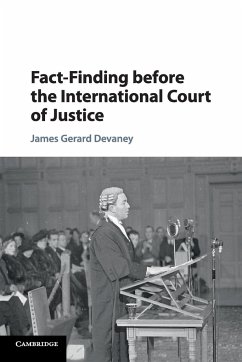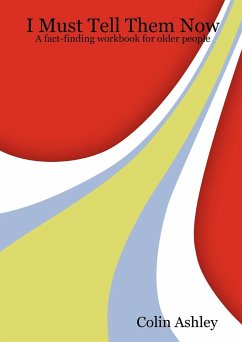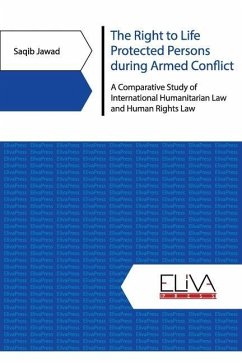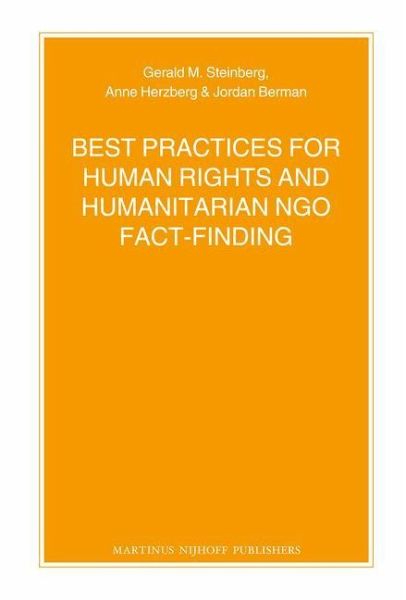
Best Practices for Human Rights and Humanitarian Ngo Fact-Finding
Versandkostenfrei!
Nicht lieferbar
This work outlines available resources and proposed standards for international NGO fact-finding missions: Chapter One presents an introduction to the issue of NGO fact-finding. Chapter Two discusses the problems caused by the lack of any generally-accepted guidelines for NGO fact-finding, in contrast with contexts where NGOs have achieved consensus. Chapter Three surveys proposed guidelines for human rights and humanitarian NGOs. In addition, this section examines United Nations fact-finding standards, as well as examples of internal fact-finding standards for major NGOs. Chapter Four analyze...
This work outlines available resources and proposed standards for international NGO fact-finding missions: Chapter One presents an introduction to the issue of NGO fact-finding. Chapter Two discusses the problems caused by the lack of any generally-accepted guidelines for NGO fact-finding, in contrast with contexts where NGOs have achieved consensus. Chapter Three surveys proposed guidelines for human rights and humanitarian NGOs. In addition, this section examines United Nations fact-finding standards, as well as examples of internal fact-finding standards for major NGOs. Chapter Four analyzes the fact-finding standards used in five specific cases: the International Crisis Group (Kosovo, 1999), the Independent International Fact-Finding Mission on the Conflict in Georgia (Georgia, 2008), United Nations Office of the High Commissioner for Human Rights Mapping Exercise on the Democratic Republic of Congo (1993-2003), Conflict Analysis Resource Center/University London study on Amnesty International and Human Rights Watch (Colombia, 1988-2004), and Human Rights Watch (Lebanon, 2006). The final chapter offers conclusions and recommendations.




